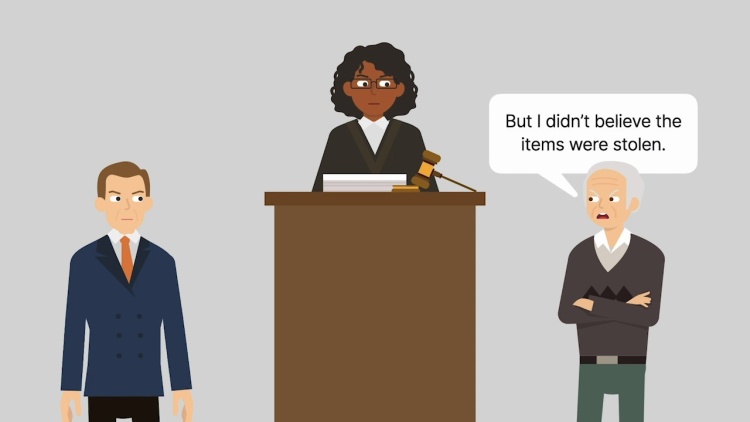State v. Beale
Maine Supreme Judicial Court
299 A.2d 921 (1973)
- Written by Craig Conway, LLM
Facts
Mrs. Johnson entered the antique store belonging to Beale (defendant), noticed several items that had been stolen from her home several months earlier, and which bore her initials, and notified the police. Beale sold the items after having previously been instructed by a police officer not to do so. Beale was charged with knowingly concealing stolen property. At trial, Beale testified that he had purchased the items at different times from people whom he considered reliable and that he had receipts for many of the items. Beale also said that he was entitled to sell the items regardless of the police officer’s warning not to sell them. At the close of the testimony, Beale’s attorney requested that the following instruction be given to the jury: “(3) The fact that the Defendant was notified that the goods were stolen after they had been purchased and received and yet went ahead and sold them does not of itself make him guilty that he had a valid receipt for the goods and that he had lawful possession of them.” The court refused to give the requested instruction. Beale was convicted and he appealed.
Rule of Law
Issue
Holding and Reasoning (Weatherbee, J.)
What to do next…
Here's why 911,000 law students have relied on our case briefs:
- Written by law professors and practitioners, not other law students. 47,100 briefs, keyed to 997 casebooks. Top-notch customer support.
- The right amount of information, includes the facts, issues, rule of law, holding and reasoning, and any concurrences and dissents.
- Access in your classes, works on your mobile and tablet. Massive library of related video lessons and high quality multiple-choice questions.
- Easy to use, uniform format for every case brief. Written in plain English, not in legalese. Our briefs summarize and simplify; they don’t just repeat the court’s language.







